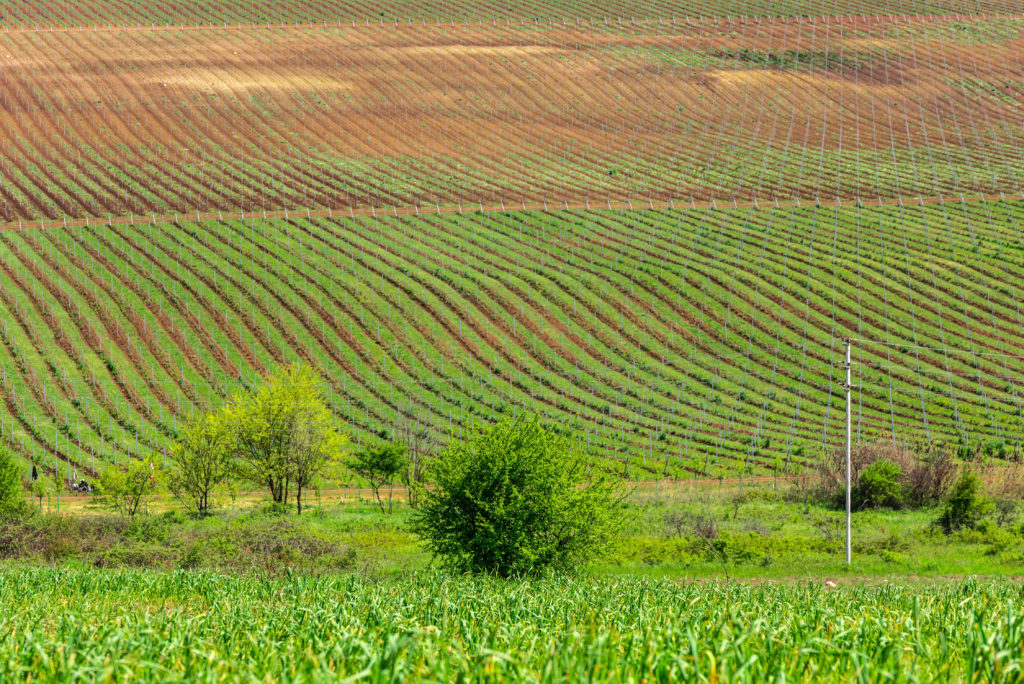BAKU
By LADA YEVGRASHINA
In this region, neighbouring Georgia is automatically associated with wine. Azerbaijan, by contrast, is rarely associated with viniculture, though its roots run deep.
Azerbaijanis who do imbibe often prefer the hard stuff – vodka or home-brewed moonshine.
The fade of wine culture in Soviet times, as in the few other viable wine-producing areas of the former USSR, was also due to an emphasis on quantity over quality, which made once-proud products about as palatable as paint thinner.
During those times, probably the best-known Azerbaijani “wine” was the rot-gut “Agdam”.
Sweet, sticky and potent as jet fuel, it was dirt cheap, The USSR’s equivalent of “Night Train”.
Thomas Goltz, a writer on the region who regularly lived in Baku and still comes to Azerbaijan, is a devotee of distilled spirits. At the time of the Soviet collapse, he said touching anything locally made was a bit like Russian roulette – few if any quality controls and frequent adulterations with potentially dangerous additives.
“I remember a New Year’s Eve party in 1993 in Baku. Those of us drinking Azerbaijani wine woke up with head-splitting hangovers.”
But things are clearly changing.
ANCIENT TRADITION ON COMEBACK
Viticulture and winemaking in Azerbaijan have a rich history.
Archaeological excavations prove winemaking has been around in present-day Azerbaijan since antiquity.
Preserved grape seeds dating to between 4,000 and 5,000 B.C. were unearthed in 1962 in the northern areas of present-day Azerbaijan.
Italian scientist and archaeologist Lorenzo Constantin, an expert on the wild flora of the Caspian region, found the seeds of cultivated grapes in the same place – present-day Agstafa.
Herodotus in the 4th century B.C. and later Strabo, four centuries later, mentioned the area as a wine-making centre during their travels to the region.
In 1931, a wine container or “jug-cup” dating to the 1st century B.C. was unearthed not far away. It still contained grape seeds.
Vitis Vinifera grape seeds dating to as early as the 2nd millennium B.C. were also discovered in the Agdam region, about 50 km away, also in the north-central part of contemporary Azerbaijan.
SOVIET-ERA BOOM TIME FOR MASS-PRODUCED AZERBAIJANI WINE
In the Soviet era, 250 Azerbaijani wineries produced 2 million tons of grapes per year, a third of all Soviet wine production.
This meant at best questionable quality. The aim was volume, to be sent throughout the USSR and to East bloc countries. There were as many as 450 varieties.
However, in 1985, due to the anti-alcohol campaign initiated by Mikhail Gorbachev, many plantations were deliberately destroyed.
Today, 20-30 thousand hectares of grape plantations remain.
Ajdar Shafizadeh, director of one of the now dozen Azerbaijani wineries, ASPI, located in the central Qabala region, a lush area of rolling hills and new grapevine plantings, called the destruction “likely irreversible”.
Yet smaller but far higher quality producers are intent on restoring tradition.
Increasing numbers of farmers express an interest in viticulture, supported by state subsidies and the European Union’s “Ark” program.
Farmer Kerim Nabiyev grows several types of grapes on a 4-hectare plot in the far northern region of Gazakh, close to Georgia.
“Grapes are treated with great respect and love in Azerbaijan,” the 50-year-old, whose family has been making wine for decades, told the Tribune. Nabiyev also harvests the classic Azerbaijani Shany variety – a popular sweet grape – from a plot near Baku.
The end of active hostilities with Armenia and the de-occupation of lands occupied for three decades – many rural and suited to viniculture – could help increase output.
Government sources told the Tribune that wine production targets are set to grow by up to 10 percent by 2024.
Even in 2021, estimates are that 220 thousand tonnes of grapes will be harvested, the highest since 2006. About a third of Azerbaijani wine is exported, mainly to Russia, Kazakhstan, and China.
FOREIGN VARIETIES, EXPERTISE COMING IN
Georgian, French and Italian grape varieties are now cultivated, and Italian technologies are used in larger wineries. Many employ equipment from Italy’s Della-Toffola, including oak barrel ageing, which was previously unheard of here.
“With our products, we are trying to revive the culture of wine drinking. In particular, we support the idea of creating an educational program on winemaking or a sommelier school in Azerbaijan, Shafizade said.
Azerbaijan exports about 5 thousand tons of grapes a year and intends to increase this figure.
In Azerbaijan itself, an average of 12 million bottles of wine are sold annually.
According to Agriculture Minister Inam Kerimov, the country has also grown several types of grapes unique to Azerbaijan. “Madras, Meyseri, Tabrizi and others glorified our country as the land of wine and viticulture not only on the Soviet space but also throughout the world.”
“I believe that Azerbaijan will restore its traditions,” he said.
Jancis Robinson, a prominent international wine analyst for nearly half a century and now the wine columnist for the Financial Times said the exotic varieties have great potential.
“Azerbaijan boasts local grape varieties – crispy Bayan Shira for white wine and thick-skinned Madras for red. The Madras variety has clearly significant potential. The wines I tasted here represent a serious attempt to bring the country to the wine map of the world,” wrote Robinson in a review.
Italian expert Pizzi Angelo Antonio recently noted that “at present, the whole world recognizes that the South Caucasus, including Azerbaijan, is the homeland of viticulture and winemaking”.
Economist Natig Jafarli believes that Azerbaijan needs to continue improving quality and price competitiveness to find a niche on world markets.
The 19th-century Azeri poet Mirza Shafi Vazeh left no doubt wine was always an integral part of the national culture.
The ability to drink is not given to everyone
Drinking is an art.
He is not smart who drinks wine without thought and without feeling.
Wine carries poison and honey,
Both slavery and freedom.
One who drinks wine like water knows not its value!

